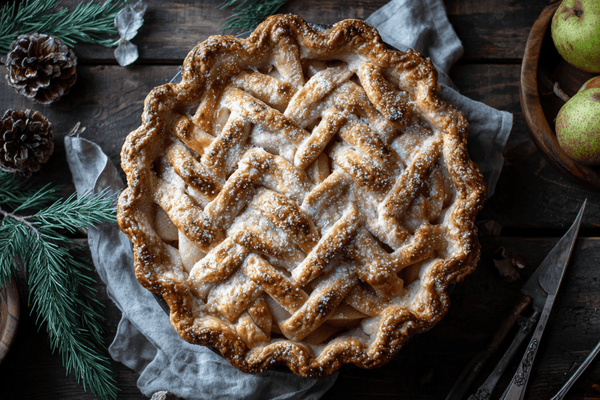
Have you ever noticed that your knife blades become dull quickly? Perhaps you’re frustrated at having to replace expensive knife sets because they stop performing how you expect them to. Many people assume that it’s the fault of the knife; it’s not high-quality enough, it’s not been well made or it's not a good knife and up to the job.
In some cases, this is true; there are some substandard knives out there that you wouldn’t want to waste your money on. However, a lot of the time, it’s mistakes that we are making that are inflicting knife damage and preventing them from performing as well as we would wish.
All chefs need a sharp knife, and by taking good care of your knives, with normal use, they should serve you for many years, especially if you invest in a high-quality set of chef's knives. In this guide, we’ll explain some of the most common mistakes that could be damaging your knife's edge.
Table of contents
Incorrect Storage

But while the knives are in the drawer, they’re constantly being moved around and can slide around, knock into and scrape against other items. This will damage and dull the blade edge and can cause bent tips and bent blades. Not to mention the potential hazard if someone puts their hand in and gets cut.
If you must keep your knives in a drawer, then an in-drawer knife block or even knife guards are a great way of protecting them and you. You can go one step further by taking them out of the drawer altogether and using something like a magnetic knife block or stand, or a knife roll. There are lots of advisable storage methods to help keep your knives in their best condition.
Choosing the Wrong Cutting Board
Cutting boards and chopping blocks are made from a wealth of different materials. The general rule of thumb to follow is that if the surface can’t be damaged by the knife, then it can damage the knife. If you try to chop or slice on a granite countertop or something like glass is only going to lead to a dull blade edge and could cause the edge or blade to bend.
A wooden cutting board is always going to be the best option, as this material is much gentler on your knife blade. What’s more, they’re very good-looking and fit in well with any kitchen style. It’s also possible to go for plastic but this isn’t quite as gentle and there is a risk of bacteria getting stuck in the grooves made by the knife, so they’re not the most hygienic.
Use Your Knife Only for Its Intended Purpose
What is a kitchen knife designed for? Working in the kitchen, right? And by this we mean preparing food, not using it as a screwdriver to tighten that loose kitchen cabinet into place or opening a tin can. However, most people are still using their knives for things other than cooking.
Sure, they might be effective and get the job done but they’ll become damaged in the process. If you need to do any other odd jobs, make sure you get your handy toolbox out and choose the right equipment; save your knives for what they’re actually intended for.
Equally, it's important to use the correct knife for the job in hand. For smaller tasks, use a small knife, like a paring knife, not the knife tip of a kiritsuke or gyuto. For chicken bones, for example, you'll need to use a cleaver, not a boning knife or chopping knife. Exerting more pressure on a blade than it is designed for could cause the blade edge to chip or roll. What's more, Japanese chef knives should never be used on frozen foods.
Not Sharpening Your Knives
It’s easy to get complacent and use knives that are dull and out of shape. If you’re using them every day, you might not have even noticed how the performance has changed over time. But using a knife without a sharp edge is dangerous and there is a far greater risk of injury to your fingers.
For this reason, we would recommend setting up a sharpening schedule so that you always stay on top of blade care. It might be ‘just another kitchen task’ but by ensuring you do it, your knives will last much longer. You can get your knives professionally sharpened or use a whetstone to sharpen your blades and attain a sharp and new edge.
Cleaning Your Knives Incorrectly

Knife blades are largely made from stainless steel and this needs to be cared for properly. Keeping your knives clean is essential in promoting good kitchen hygiene but too many people are doing it incorrectly without even realising.
You shouldn’t use any harsh chemicals on your knives. Where possible, we suggest that warm water in your sink is more than enough, but if there are stubborn spots then some normal washing-up liquid will be fine.
It’s also essential not to wash your knives in the dishwasher as there is a chance of them being seriously battered by the jets of water, or damaged by other utensils in the dishwasher and the chemicals in the detergent. Hand washing doesn’t take long and it will ensure a greater lifespan for your blades.
Also, remember never to leave your knives soaking. It can be tempting to leave the washing up for another time but if you’re going to do this, make sure that your knives are not left in a bowl full of water. There’s a chance that the knife will get damaged by other items and if you leave it soaking repeatedly, the metal will begin to rust and corrode. Always dry the blade thoroughly with a clean towel to prevent rust spots from appearing which can cause even more damage.
Not Using the Knife Properly
You might not think it but even the way you hold your knife could be doing it more harm than good. If you don’t use the right grip, this can lead to losing control over the knife which could mean that you don’t cut at the right angle, therefore damaging the blade.
Some people are also far too rough with their knives. You don’t need to use unnecessary pressure and hammer them down into the food, as this means they’ll make rougher contact with the cutting board and this will dull them. The rocking cutting technique is a great way to work with your knives and is gentle on the blade.
Final Thoughts
If you buy a good set of kitchen knives then you will want to make sure that they last a long time. However, not taking good care of the blades can result in premature damage to the edge and the tip, and yet so many people are still making basic mistakes.
Try altering how you use your knives as well as how you maintain them and you’ll likely notice their performance drastically improves.


